Fiberglass Insulation
Its Benefits
Sustainable
- Made primarily from sand, one of the world’s most abundant resources
- Lower embodied energy than traditional batts
- Rapidly renewable binder eliminates non-renewable petroleum-based chemicals
- Contains no phenol, formaldehyde, acrylics or artificial colors
High Recycled Content
- Achieved a UL Environment claim validation for over 50% recycled glass content
- Thermally Efficient
- Excellent insulating value
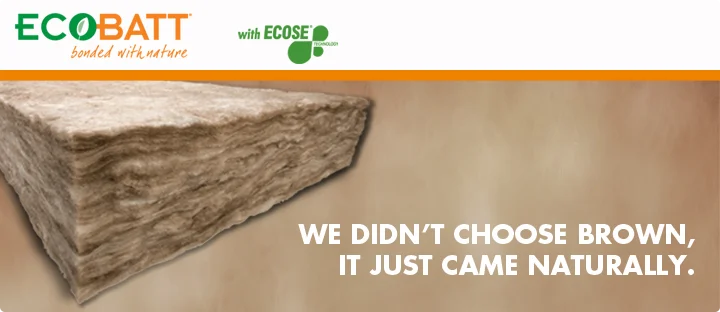
Types of Fiberglass Insulation
There are 2 types of fiberglass insulation for 2 different applications.
Fiberglass Batts
Batts are the most common form of insulation. They are large pieces of interwoven fibers that look like pillows. They work well in walls or framed cavities in which the shape fills the space with no gaps.
- R-Value 3.2 per in. (approximately)
- Effective fire retardant
- Formaldehyde free
Ideal Applications:
- New Construction
- Open attics, walls, floors
- Framed cavities
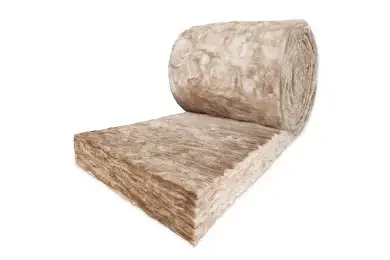
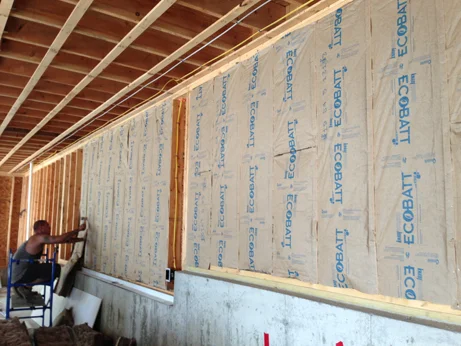
Blown-in Fiberglass
Blown-in or loose-fill fiberglass insulation is made of smaller pieces that are shot out of hose. Once it’s blown in, gravity will help settle the loose fibers to tightly fill any cavity.
- R-Value 3.2 per in. (approximately)
- Fills entire cavity
- Effective fire retardant
- Formaldehyde free
Ideal Applications:
- New construction
- Open attics
- Attic/Knee-wall floors
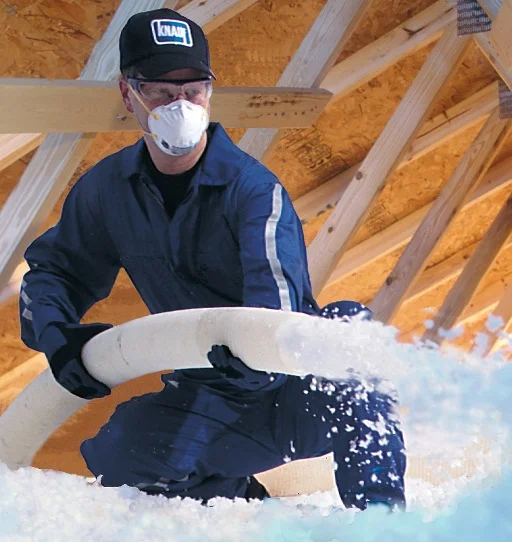
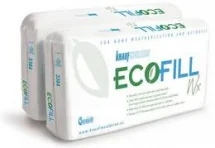

Knauf Insulation EcoBatt®
Insulation doesn’t look like any insulation you’ve ever seen, but that’s because its natural brown color represents a level of sustainability we’ve never before achieved.
The color comes from ECOSE Technology; a revolutionary binder chemistry that enhances the sustainability of our products. The “binder” is the bond that holds our glass mineral wool product together and gives the product its shape and brown color. ECOSE Technology is a plant-based, sustainable chemistry that replaces the phenol/formaldehyde (PF) binder traditionally used in glass mineral wool products. Products using ECOSE technology are formaldehyde-free and have reduced global warming potential when compared to our products of the past.
EcoBatt Insulation combines sand, one of the world’s most abundant resources, recycled bottle glass and ECOSE Technology to create the next generation of sustainable insulation…naturally from Knauf Insulation.
Description
Knauf Insulation EcoBatt Insulation are thermal and acoustical products made from highly resilient, inorganic glass fibers bonded by a thermosetting resin. The products are available unfaced or with kraft, foil, or flame-rated FSK-25 (Foil-Scrim-Kraft) foil facings.
Application
Knauf Insulation EcoBatt Insulation are cost-effective thermal and acoustical barriers for energy-efficient construction. Their consistent quality, low dust, and clean-cutting resilient fibers make fabrication easy and installation fast. The products can be used in new and retrofit wood and metal frame applications in residential and commercial structures, as well as in manufactured housing applications. These applications include thermal and acoustical treatments to walls, ceilings, and floors.
In addition, High Density (HD) batts are available where optimal thermal performance is required and space for insulation is limited. High Density Cathedral Ceiling Batts, for example, deliver greater R-value in less space, so builders can increase R-values and still maintain adequate space for ventilation.
Knauf Insulation EcoBatt QuietTherm® Insulation’s excellent acoustical properties reduce sound transmission when properly installed in partition walls, ceilings, and floor assemblies.
Sustainable
- Made primarily from sand, one of the world’s most abundant resources
- Lower embodied energy than our traditional batts
- Rapidly renewable binder eliminates non-renewable petroleum-based chemicals
- Contains no phenol, formaldehyde, acrylics or artificial colors
High Recycled Content
- Achieved a UL Environment claim validation for over 50% recycled glass content
- Thermally Efficient
- Excellent insulating value
Knauf Insulation EcoFill™ Wx
Blowing Wool Insulation is an unbonded, virgin fibrous glass blowing insulation having a high degree of post-consumer recycled content, designed for weatherizing and retrofitting existing housing.
Application:
EcoFill™ Wx Blowing Wool Insulation is used to dense-pack sidewalls using the drill and fill technique common in retrofitting homes or in home weatherization activities. EcoFill Wx is also excellent for doing open blows in attics. This means that only one product is needed to complete an insulation retrofit/weatherization project.
Features and Benefits:
- Fills all gaps and voids in wall cavities, creating a thermal barrier against outside air and better temperature control.
- Has greater resistance to air infiltration than cellulosic materials.
- Resists heatflow with an R-value of R-15 in 2 X 4 construction.
- Resists heatflow with an R-value of R-23 in 2 X 6 construction.
- Absolutely will not settle in walls.
And Attics:
- Will not change from its intended R-value over its lifetime.
Better Coverage than Cellulose:
- More than 2x the coverage per bag.
Sustainability:
- Over 61.9% post-consumer recycled content.
- Each bag contains the equivalent of 30 recycled bottles.
Indoor Air Quality:
- GREENGUARD™ Gold Certified to meet the toughest indoor air quality standards in the industry.

Knauf Insulation Jet Stream® ULTRA
Blowing Wool Insulation is an unbonded, virgin fibrous glass blowing insulation designed with optimal thermal properties and excellent coverage and blowing characteristics.
Application
Knauf Insulation Jet Stream ULTRA Blowing Wool Insulation is installed in open attics of both new and existing structures and/or in closed cavity applications with the BIBS system (Blow-in-Blanket System) in which ventilation is not required. Jet Stream ULTRA, when used in closed cavity applications is BIBS approved and can only be installed by BIBS certified installers to ensure the highest quality installed performance. Loose fill blowing insulation is intended for use where pneumatically installed insulation is most cost-effective.
Features and Benefits
Excellent Thermal Performance
- Fills all gaps and voids, creating a thermal barrier against outside air and better temperature control
- Resists heat flow with an R-value of:
- R-15 in 2 x 4 construction
- R-23 in 2 x 6 construction
